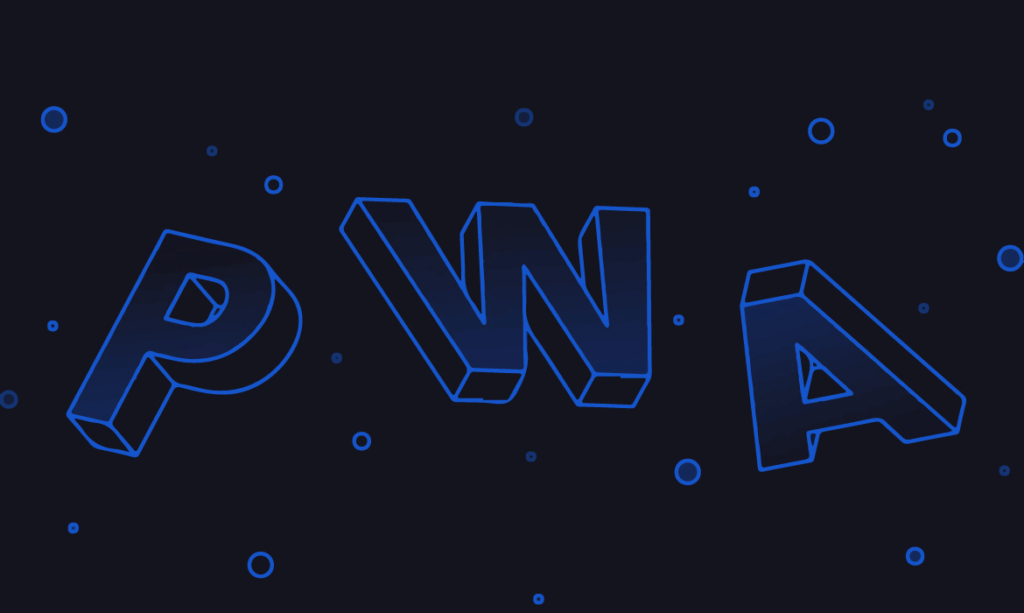
The needs of a modern mobile user have changed considerably. They no longer require the clunky technology of a web browser to use the internet. Any good PWA development company, having understood this, would look into investing in a progressive web application. However, before you jump on the PWA bandwagon, there are a few things you must know. Let’s take a look at them!
What Is a Progressive Web Application (PWA)?
In simple words, a progressive web application is a hybrid form of a website and a native application. A PWA uses the web browser to connect to the internet and provides you with its features. While it looks and behaves like a native application, it does not need to be downloaded onto a device.
The data on the app is stored on a server, far away from your device. This means that a web development company can create an application that takes up zero space on your device. Since it requires no downloading, it is governed by different requirements and techniques. These unique technologies also often make it more profitable than a native app.
Components of a PWA
Most progressive web applications are made of the following components:
- Web App Manifest – The web app manifest allows a progressive web app to express features that look like a native app. These often include features like a home screen icon.
- Service Workers – This is where the real work goes on in a progressive web app. A mobile app development company uses service workers to implement background tasks, provide offline support, design the shell architecture of the application, and so much more.
If you’re curious to see how progressive web apps work with these two components, some great examples are web apps like MakeMyTrip, Pinterest, Uber, Spotify and others.
Benefits of PWAs
So what is it that makes a PWA so innovative and desirable? The answer simply lies in its features. There are quite a few that make it so popular. Let’s take a look at some of them.
1. Very Few Restrictions
The best thing about a progressive web app is that it has very few restrictions imposed on it. Unlike a native app, it is not reliant on a source code or system software. As a result, it can work well on any web browser, for any platform. It is this feature that makes these web apps so progressive. Now, a mobile app development company can reach millions of users with a single PWA.
2. Responsiveness
For any application to be successful, it has to be responsive on multiple platforms. Most PWAs today are extremely responsive on mobile and web browsers. This responsiveness of a PWA is another factor that makes it so popular. If you wish to capitalize on this, you will need to hire dedicated developers to aid you.
3. Independent Of Connectivity
A webpage cannot load without the internet. However, a PWA is less independent on an internet connection. Hence, even without an internet connection, a progressive web app can offer its users some limited features. To do this, a mobile application development company would need to create app caches in your web browsers. This function is achieved through the service workers component of a PWA.
4. User-friendly
A progressive web app is a unique blend of native features and web pages. Since most users prefer the look and feel of a native app, companies now hire dedicated developers to come up with features that imitate them. This makes a PWA attuned to the needs of a user, and thus, popular.
Cons of a PWA
Despite their many benefits, PWAs are not without their faults.
1. Drains The Battery Power
Since a mobile application development company often writes a PWA in complex codes, mobile browsers have to work harder to read them. As a consequence, PWAs tend to drain batteries faster than a native application.
2. Limited Access To Features:
Unlike native apps, PWA development does not equip a web app to interact with the features of your mobile device. Hence, it may actually lag behind the native apps. Moreover, PWAs cannot access features like NFC, Bluetooth and so on, hampering some of their functions.
Why Are PWAs Necessary?
PWA development is instrumental in solving most problems like slow internet connections, user engagement, slow website loading, and more. They provide web applications that have the following benefits:
- Fast – To increase user satisfaction, PWAs provide faster loading times, usage ease and more such benefits.
- Seamlessness – The beauty of a PWA lies in its seamless functioning. They sit in your home screens, send push notifications, and allow uninterrupted and integrated usage.
- Engaging – A PWA, although a webpage, can directly engage with users through push notifications. This way, a progressive web app development company can directly engage with the users.
Building a PWA
Building a progressive web app requires four main components:
- Web App Manifest – This is what holds all the information about the app, like the colour, design, and so on. JSON files give the metadata of the app.
- Service Workers – These codes run in the background of a PWA and keeps it functioning smoothly. It is what connects the network and the application. It can load offline data, store cached information, and perform other such functions.
- Icon – The PWA requires a home screen icon to complete its native app-like functioning. This is very useful in increasing user engagement.
- HTTPS Connection – Lastly, progressive web app requires an HTTPS connection for the server. Without this, a PWA would be left vulnerable to middleman cyber attacks.
Cost of Building a PWA
Generally, statistics show that building a simple PWA can cost anywhere between $1000 to $10,000. With the increasing complexity of features, this can go up to $25,000 to $50,000 as well.
Concluding Thoughts
PWA technology makes app functions easily accessible to users. Undoubtedly, this makes PWAs the mark of the future. Hence, the sooner a company invests in progressive web app development, the better the profits will be.

Author Bio: Tarun Nagar is the Founder & CEO of Dev Technosys, a global ranking Web and Mobile App Development Company. With 10+ years of experience of enabling then Startups which are now global leaders with creative solutions, he is differentiated by out-of-the-box IT solutions throughout the domain. He is known for his visionary qualities and adaptability for technology and trends, passionate as he is in every aspect dedicated to making IT simple, accessible and approachable for business enterprises.
Author LinkedIn Profile – https://www.linkedin.com/in/tarun-nagar-2a98b2117/